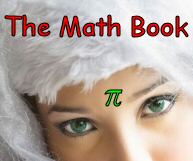Friday, December 22, 2006
Mathematics and God
 A number of famous mathematicians have made comments about mathematics and various notions of God. These mathematicians span different religions and conceptions of deity, including none at all.
A number of famous mathematicians have made comments about mathematics and various notions of God. These mathematicians span different religions and conceptions of deity, including none at all.Many mathematicians have expressed the view that God is in some way responsible for the rational order described so successfully by mathematics. This often involves likening God to a mathematician. The ancient Greek study of mathematics was closely related to that of religion. Plato is quoted as saying "God ever geometrizes" and Pythagoras as saying "numbers rule the Universe". Johannes Kepler stated that "The chief aim of all investigations of the external world should be to discover the rational order and harmony which has been imposed on it by God and which He revealed to us in the language of mathematics." Leopold Kronecker is quoted as saying "God made the natural numbers, all the rest is the work of man." However, this was intended more in the Kantian sense that they are given to us in intuition than in the literal sense that God created them. James Jeans said "From the intrinsic evidence of his creation, the Great Architect of the Universe begins to appear as a pure mathematician". According to Henri Poincaré, "If God speaks to man, he undoubtedly uses the language of mathematics." Georg Cantor equated what he called the Absolute Infinite with God. He held that the Absolute Infinite had various mathematical properties, including that every property of the Absolute Infinite is also held by some smaller object. According to Srinivasa Ramanujan, "an equation is meaningless to me unless it expresses a thought of God." He often said that in Mathematics alone, one can have a concrete realisation of God. 0/0, he used to ask, "what is its value?" It may be anything. "The zero of the numerator may be several times the zero of denominator and vice versa. The value cannot be determined. In the same way 2^n − 1 will denote the primordial God and several divinities. When n is zero the expression denotes zero, there is nothing; when n is 1, the expression denotes unity, the Infinite God. When n is 2, the expression denotes Trinity; when n is 3, the expression denotes 7, the Saptha Rishis (Seven Sages of Ursa Major) and so on.[1] Paul Erdős, though agnostic, jokingly called God the Supreme Fascist. He claimed that the SF had a transfinite tome called "The Book", in which all provable theorems were demonstrated in the most elegant possible way, the best ones being kept secret.
Paul Halmos, in a 1990 interview, says "What's the best part of being a mathematician? I'm not a religious man, but it's almost like being in touch with God when you're thinking about mathematics. God is keeping secrets from us, and it's fun to try to learn some of the secrets."
Mathematical "proofs" of the existence of God: Saint Anselm's ontological argument sought to use logic to prove the existence of God. A ore elaborate version was given by Gottfried Leibniz. Kurt Gödel created a formalization of Leibniz' version, known as Gödel's ontological proof. René Descartes, in his Meditations on First Philosophy, attempted to carefully ascertain what he really knew to be true, which led to a supposed proof of God's existence. Pascal's Wager (also known as Pascal's Gambit) is Blaise Pascal's application of decision theory to the belief in God. Recently, Stephen D. Unwin employed Bayesian probabilities, a statistical method devised by 18th-century Presbyterian minister and mathematician Reverend Thomas Bayes, to compute the probability of God's existence.
This article is licensed under the GNU Free Documentation License. It uses material from the "Wikipedia article "Mathematics and God". This entry is a fragment of a larger work. Link may die if entry is finally removed or merged.
 The Wikipedia Knowledge Dump (WikiDumper.org)
The Wikipedia Knowledge Dump (WikiDumper.org)



